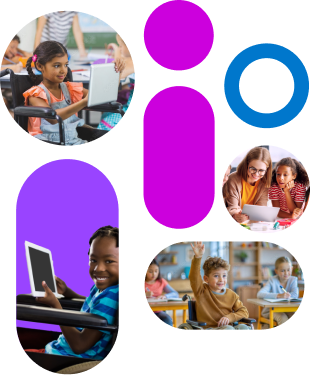It Takes an Ecosystem: Harnessing Tech and Community for Education Equity
Four experts across educational content, technology, learning disabilities, and school administration share insights and strategies for closing learning gaps to ensure a level playing field for academic achievement through reading.
In Benetech’s second event in a three-part series focusing on inclusive education, the conversation focused on equity in education and how technology and community can come together to enable inclusive access to personalized learning. Discussion topics ranged from inequities in US education to ways we can leverage technology, community, and best practices to support the 1 in 5 children with learning differences like dyslexia and other disabilities– especially those who face additional challenges due to racial injustices and socioeconomic disadvantages.
[inline_module class_name=’Benetech__Image’ instance=’0′]
Moderated by Dr. Lisa Wadors Verne, Director of Government and Community Affairs for Benetech, and joined by four esteemed panelists:
- Susan Winslow, President of Macmillan Learning
- Dr. Arturo Cavazos, superintendent in residence, Holdsworth Center, and former superintendent at Harlingen Consolidated Independent School District in Texas
- Dr. Shawn Anthony Robinson, aka Dr. Dyslexia Dude, author, reading instructor at Madison College, and senior research associate at the University of Wisconsin-Madison
- Natalie Wexler, education writer and author of The Knowledge Gap: The Hidden Cause of America’s Broken Education System – and How to Fix It
Role of Digital Publishing in the Education Ecosystem
The panelists offered a variety of insights and solutions for closing the equity gap in education. When asked about the role of publishing to connect students with accessible content so they can grow into successful readers and learners, Susan Winslow spoke about Macmillan’s work to create accessible ebooks that can be used with assistive technologies. “There’s no reason that students with disabilities shouldn’t have the same access to learning materials as their peers,” she explains. “Flexible technologies that are built with learning science underneath them and can be molded around a human endeavor will be most successful in the long run.”
Macmillan Learning was the first publisher to receive Global Certified Accessible certification through Benetech’s accreditation program for providing born accessible ebooks for students with disabilities.
New Structure for Equitable Learning
The pandemic illuminated some dark corners of our school system: lack of access, lack of technology, digital skills gaps, and internet connectivity gaps. Arturo Cavazos stressed that we must fight this notion of returning to normal because there are some parts of normal that are not worth running back to. Instead, he urges schools to fight regression to the mean and create a coalition for continued change. “Technology is our friend. We must focus on literacy or kids will give up. Fortunately, we are a resilient society,” he adds.
“Instruction needs to be prescriptive and diagnostic. We need to be purposeful in the technology and the programs that we choose, and it should be hand in glove with high-quality instruction.”
Dr. Arturo Cavazos
He urges schools to engage in dialogue that moves people from compliance to commitment. “We need to use equity and access as a new lens to do the right work and strategically abandon the wrong work,” he says. “Kids are going to do well if they are prepared in the four Cs – communication, collaboration, creativity, critical thinking – and commit to making literacy, access to books, and use of technology a priority.”
Creating an Ecosystem that Supports Equity in Education
What are the factors that enable an ecosystem to support equity in education? “It’s commitment. It’s building a community. It’s leveraging technology to give students access to knowledge,” explains Dr. Shawn Anthony Robinson, a reading instructor, author, and role model as a student and now as an adult with dyslexia. “Because once students get access, they become independent and confident. Literacy is liberation. If you can’t read well, you’re not going to have a joyful experience trying to navigate life since so many things involve literacy, reading, writing, and speaking.”
Is the Education System Broken?
Natalie Wexler has a somewhat radical critique of the current education system. She believes that it only works for students who would probably thrive no matter what. “They are not thriving because of our education system; they are thriving despite it,” she adds. “Those students tend to come from more highly educated families and start out with the advantage of being exposed to more academic knowledge and vocabulary from birth.”
Natalie suggests that schools combine technology with a knowledge-building curriculum to get skills and concepts into kid’s long-term memories so they can draw on them in the future. In particular, the curriculum should line up with scientific evidence on both decoding and building academic knowledge and vocabulary.
The panelists all agreed that the pandemic gives schools, teachers and parents the opportunity to hit the reset button and leverage the power of community, technology, and the science of learning to make education more equitable and effective for all students.
Join the conversation on LinkedIn
Mark your calendar for May 11 when the third and final event in the series will explore the global perspective on education to employment.
